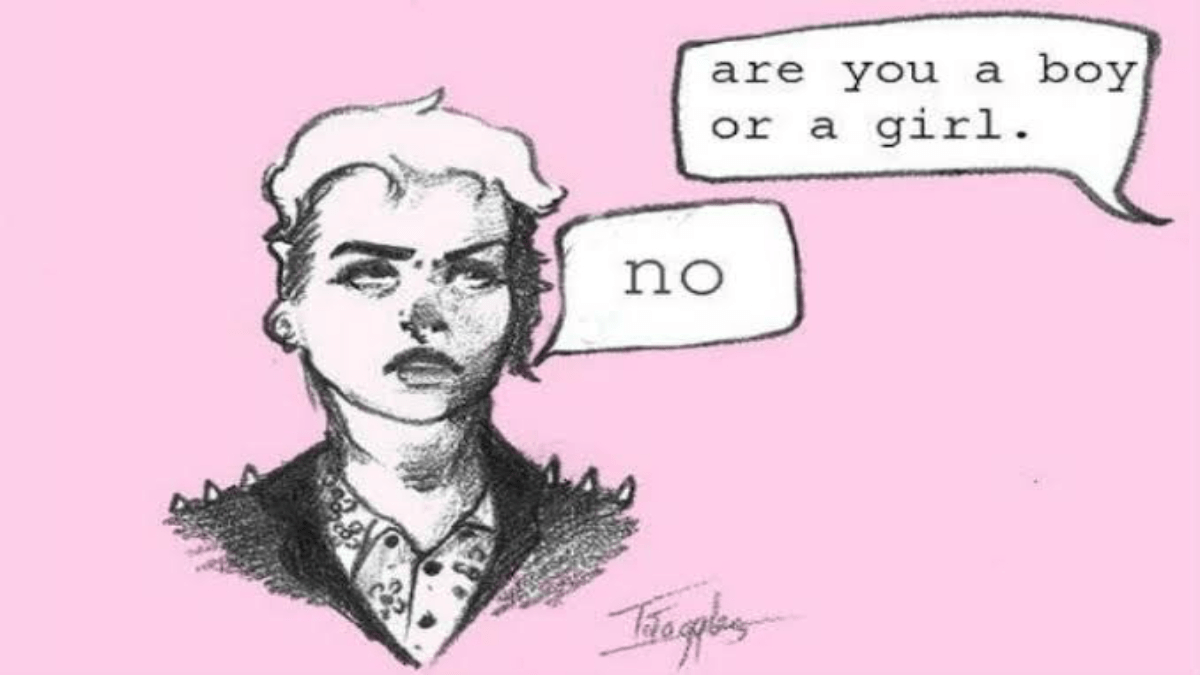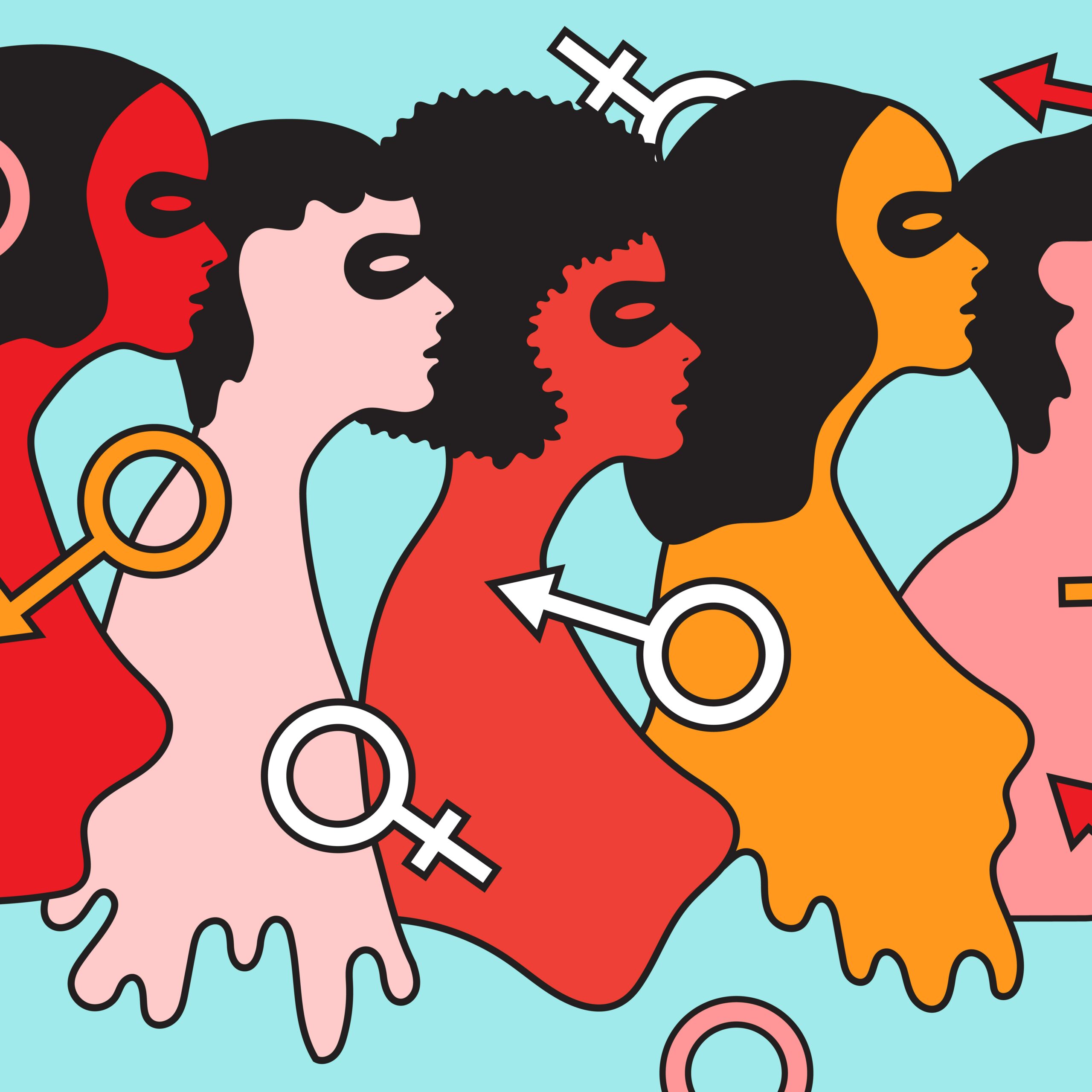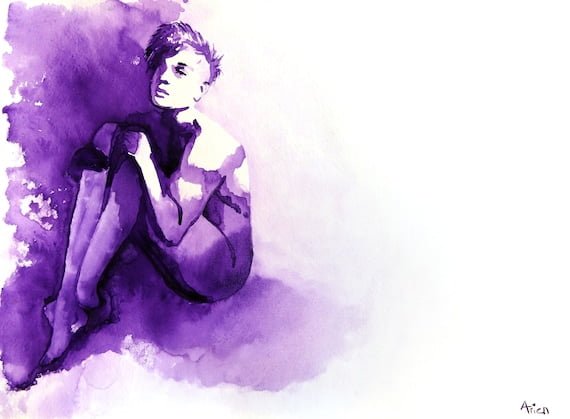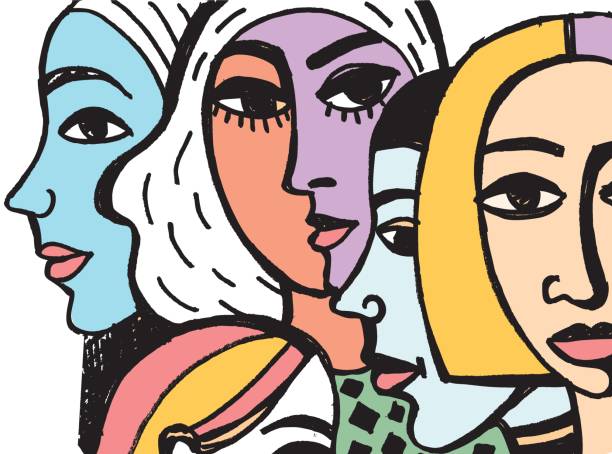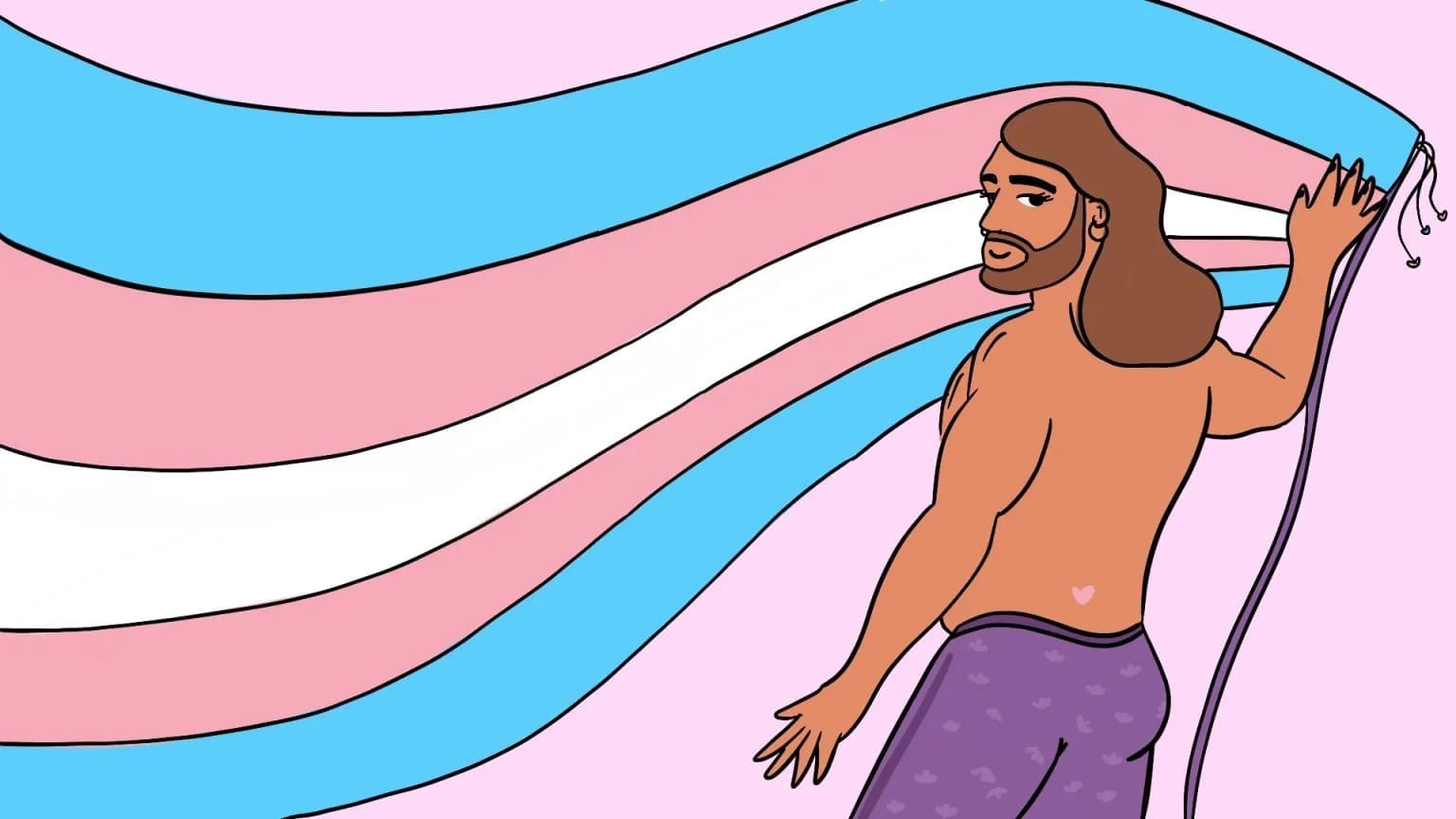‘Ye ladka hai ya ladies?‘ (Is this a boy or a lady?) asked a leisured boy in a lower income neighbourhood I have frequented for a year now. He was one of five such boys sitting on a katta at the foot of the hill on top of which the school I was heading to is situated. The question was not posed to me, but to a friend who was with me. The expectation was that he would clarify as to my gender, for with short hair, in a shirt and jeans, I seemingly had the body of a lady but everything else of a ladka. When counter-questioned as to what he would derive from the answer, the boy retreated, suddenly espousing the strangest shyness and shame that came not when he posed such a question. I stood there, amused.
When I walked up the hill and into the class, many students pushed me to pause the program and address why my hair had changed so drastically since we last met. This pattern would continue in several schools over the coming weeks, while in others, I was greeted refreshingly with a ‘Oh didi, nice hair!‘ These moments have been breaths of fresh air, pulling me out from under the sea of anxieties and oft-overwhelming dysphoria I have lived with over my hair for years.
The incident with the five boys occurred a week after I had taken a rather bold step considering the expectations, anticipations, and anxieties of those in my life- my extended family that I presently live with, my friends, the children I work with and the educators in their schools. Not only these, but also the watchman, my parents and the household help in their house far away, our laundry bhaiya, old friends who had said nary a word to me in years popping up in the comments section on Instagram, and most intrusively, a man who sold me a pair of jootis while wondering aloud what business I had buying the traditional “female” shoes since everything else about this “ladies” screamed that they were a “ladka”. Most have expressed a dissonance with “the sudden decision” I had made- unbeknownst of the fact that this was a change I had been building up the courage to make for many, many years.
The expectation was that he would clarify as to my gender, for with short hair, in a shirt and jeans, I seemingly had the body of a lady but everything else of a ladka.
And, of course, there are the men outside the railway station near home that examine my body to confirm whether it may be treated as property now that my hair is no longer a dead give-away as to what is not even the gender I identify with. Alas, oppression lies in the eyes of the beholder. These, by far, are the most uncomfortable of the experiences I am collecting now that I look like a ladka. I knew it would be everybody’s business once my hair was gone, but that does not mean that it does not hurt me every time a comment is made or a look thrown- this is a notion I have been trying to find comfort in.
There have been vocal musings about my decision, but there have also been looks of shock and bemusement. Etched clearly in my brain is the moment an elder educator with a head full of grey hair not quite longer than mine, bent over nearly backwards to check who this boy-looking girl, or girl-looking boy was, sitting on a sofa in the lounge of an “elite” school in urban Mumbai. What a stark contrast to my grandmother back home who refused to look at me for days after I made the cut and addressed me and the floor as one. It seems that the gender euphoria I felt in the moments after I “chopped it all off,” basking in the support of a handful of friends and allies over Whatsapp video calls and messages, comes back rarely and mostly just in moments of solitude. For weeks since I made this liberating decision, I continue to receive glares from strangers on the street and guests at home alike who look at me as though I have personally offended them.
The politics of hair, however, runs so much deeper than these micro-aggressions that have caused me pain over the last month. Clear as day, I will remember for the rest of my life, how the salon specialist at a high end “salon café” (whatever that means) who joined me on the “chopping it off” journey recounted his life story. ‘I am from the barber caste, you see, and while I studied to be an engineer, look how I wound right back here doing what my father did, and his father did as well. That engineer life just wasn’t for me,‘ he shared, as I wondered what this meant in the broader context of my politics.
The politics of hair, however, runs so much deeper than these micro-aggressions that have caused me pain over the last month.
We shared many a story and a laugh that day as we annihilated what used to be Hermoine Granger’s envy, but after an initial greeting of stumped-ness and shock at home, I was promptly forbidden quite violently from touching anything, especially in the kitchen, until I bathed. Here, the intersection of gender identity, the politics of hair and the collective caste conscious formed a trifecta of negotiations as I uncomfortably questioned my own temptations to break free against the immense fear of confrontation against these structures that I harbour so anxiously.
But- what does this politics of hair mean to me? Where do I place the immense discomfort I have felt with femininity and masculinity alike all my life? And what of my the longing to express gender outside the bounds of the binary? And how I have been chided for letting go of that uncomfortable mane of hair for a simply more comfortable alternative. Over the last month, I have realised that this has been the first time I have looked in the mirror in years and not completely hated myself. And if it is simply a matter of being able to accept and appreciate myself and being endowed by a small semblance of self-acceptance, queer joy, and a one-point reduction on the permanent-anxiety scale, then what does it matter to them why I cut my hair?
